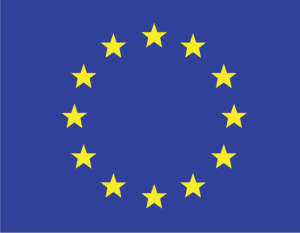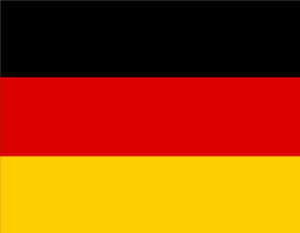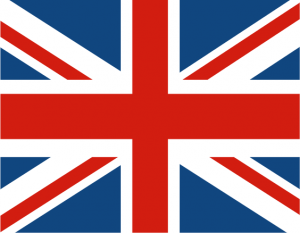Setting up a business in Europe? Here are 5 things to think about
Whether you see yourself in a sleek Swedish office, a trendy Berlin start-up or a bustling London store, there are plenty of business hotspots in Europe to choose from.
Find out more by reading on.

Setting up a business in Europe will give you access to a diverse market of customers, including some big hitters working in Europe’s financial and healthcare sectors.
There are costs to weigh up too including some relatively high taxes and property prices so it’s really worth doing your research. To help you, here are some of the key things to think about before starting a business in Europe.
Asses the pros and cons
It’s worth asking yourself, why Europe? Taking a look at the pros and cons can help you decide if the European market really is the one for you or if you’re better establishing your business in the Americas, Asia or Australasia.
One major advantage of setting up in a European country is easy access to other European countries. The Schengen Area provides free movement of people between 26 European countries including Germany, France, the Netherlands, Spain and Switzerland. Not only does this free movement mean your workforce can come from multiple countries but it also means there’s easy travel between countries with great rail and road links.
As you no doubt already know, the UK has left the EU. As one of the leading world economies you may want to base your European business in the UK so it’s worth looking into how you’ll be impacted by Brexit. The UK is no longer part of the Schengen area and is striking up new trade deals with European countries.
Count the costs
Europe is a diverse continent so the costs of running a business will vary from country to country. For example, Switzerland has high wages and expensive real estate whereas countries in Eastern Europe usually have lower wages and the cost of commodities like food and drink are cheaper. To help you compare European countries, the European Commission website has a tool to check things like income and cost of living.
It’s also worth looking into corporate tax and other tax rates for different countries in Europe. There can be quite a variety of rates across the EU, for example in Sweden corporate tax is 20.6% but in Ireland it’s 12.5%. If you’re planning on hiring staff you’ll want to look into the employer’s tax contributions as well as if there are any other taxes you’ll need to pay on things like commercial property. For example, if you rent an office or shop in the UK you need to pay business rates to the local council. You can estimate your business rates on gov.uk.
If your business is entirely online then you might want to weigh up the costs of taxes and wages in Europe against the cost of shipping products from outside the EU. You might find it works out cheaper to base your business somewhere like the US or that it’s worth having a European base to reduce freight and shipping costs.
- Open up to 20 local currency accounts, with local sort codes, account numbers and IBANs
- Collect secure payments from 130+ marketplaces, overseas buyers and payment processing gateways
- Pay suppliers, partners and staff in 40 currencies without hidden fees
- Pay and get paid easily with local bank details on your invoices
- Lock in conversion rates to manage your currency risk
Check how your sector performs in Europe
It’s worth researching how your sector performs in Europe to help you decide if the European market is a good fit for your business. To help, here’s a summary of some of Europe’s top-performing sectors.
The European tech sector is booming. According to Forbes, 2020 was a record year with European tech companies raising $41 billion in investment. Digital technologies that enable remote working, fast internet connections and plenty of IT and coding graduates have made Europe a fertile place for innovative tech startups. Top tech companies based in Europe include:
- Spotify – Sweden
- Skype – Luxembourg
- Klarna – Sweden
The automotive industry is a key sector in Europe. Leading European car manufacturing brands include:
- Volkswagen – Germany
- Volvo – Sweden
- Renault – France
- Fiat – Italy
- Jaguar Land Rover – UK
Another thriving industry is healthcare. Major pharmaceutical companies with headquarters in Europe include:
- Novartis – Switzerland
- Roche Holding – Switzerland
- Sanofi – France
- GlaxoSmithKline – UK
- AstraZeneca – UK
Considering the great wealth of European cuisine, it’s not surprising that the agri-food business is well established in Europe. Leading companies include:
- Nestle – Switzerland
- Danone – France
- Heineken – Netherlands
- Unilever – Netherlands & UK
- Diageo – UK
Reach European customers through online marketplace
If you want to hit the European market as quickly as possible then selling through an online marketplace will give you instant access to a European audience. Unsurprisingly, Amazon and eBay are big hitters in Europe, but there are plenty of other online marketplaces that are popular on the continent.
Zalando describes itself as Europe’s leading online fashion platform. If you’re in the fashion industry then partnering with Zalando will give you access to customers in 17 countries. Zalando has an eProcurement system that suppliers can use to register and which Zalando can use to process orders and invoices for indirect goods and services.
Other leading marketplaces in Europe include:
If you’re planning on selling your goods across Europe it’s well worth doing your research and making sure you have a presence on the top-performing marketplace for each country. As you can see from the list above, different marketplaces perform in different places so there isn’t necessarily a one size fits all solution for Europe.
Find the best location
If you need a physical location in Europe, be it a store, factory or office, there’s a great range of cities to choose from.
London has financial, commercial and cultural hubs as well as several major airports. Rents are traditionally high, although there are some bargains to be had as commercial landlords try to encourage businesses back after the pandemic lockdowns. Companies with offices in London include Google, Sky, Goldman Sachs and Deloitte.
Berlin is Germany’s largest city and the fastest-growing start-up hub in Germany. As well as attracting start-ups, Berlin has a thriving tech and creative scene.
Beyond its famous romantic sites, outstanding restaurants and beautiful buildings, Paris is the home of many major international companies. Given Parisians’ reputation for beauty and style you won’t be surprised to find that L’Oréal, Hermès and Estée Lauder are based there.
With it’s great nightlife, beautiful canals and vibrant cultural scene, Amsterdam is an attractive business destination if you want a good work/life balance. You can reach 97 countries from the vast Schiphol airport making it a great location for international business. Multinational companies with headquarters in Amsterdam include Adidas, Tesla Motors and Netflix.


The opportunities in Malaysia when expanding your business globally
Explore business opportunities and manage costs effectively in Malaysia with this guide for European businesses.
Dec / 2024
Poland’s tech hubs that are driving business innovation and growth
Discover how Warsaw and Krakow are driving business growth in Poland. Learn about their innovative tech scenes and opportunities for expansion.
Dec / 2024
How Poland’s stable economy lets businesses thrive
Poland’s resilient economy and pro-business policies make it an ideal destination for businesses looking to grow.
Dec / 2024WorldFirst articles cover strategies to mitigate risk, the latest FX insights, steps towards global expansion and key industry trends. Choose a category, product or service below to find out more.
- Almost 1,000,000 businesses have sent USD$150B around the world with WorldFirst and its partner brands since 2004
- Your money is safeguarded with leading financial institutions






































































